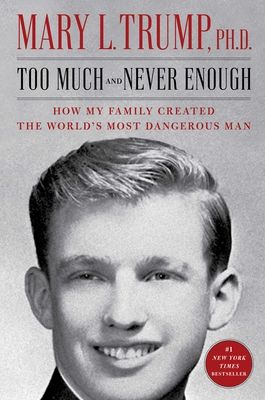Home
Gates of Hell: Why Bill Is the Most Dangerous Man World:
Loading Inventory...
Barnes and Noble
Gates of Hell: Why Bill Is the Most Dangerous Man World:
Current price: $18.00


Barnes and Noble
Gates of Hell: Why Bill Is the Most Dangerous Man World:
Current price: $18.00
Loading Inventory...
Size: Paperback
*Product Information may vary - to confirm product availability, pricing, and additional information please contact Barnes and Noble
In this powerful and hard-hitting analysis, Daniel Jupp examines the enormous personal power and political influence of one of the world's richest men. The Gates of Hell covers everything from the childhood influences that shaped Bill Gates to the Microsoft years and his current incarnation as the most powerful philanthropist on the planet. Jupp traces just how vast and unaccountable the influence of Gates has become, including his leading role in current global health policies and the drive toward a net zero "Green Revolution," which threatens the economic and social fabric of the entire western world.
Firmly asking the questions that mainstream commentators often avoid, Jupp supplies a damaging criticism not just of Gates himself but of the political corruption and inertia which has allowed one man to effectively direct key global policies adopted by multiple nations without any democratic accountability. From educational and health campaigns of dubious efficacy and unexamined risk to green policies that make little rational sense, Jupp shows how the public-private funding hybrid championed by The Gates Foundation allows a powerful billionaire to push health, agriculture, and science policies in directions which profit investors whilst harming others who have no say in any part of the process.
Now more than ever, following the COVID-19 pandemic, the consequences of lockdowns, mass mRNA vaccinations, and the advances of net zero policy, questioning why one man—who has never been elected to office—has such influence on these decisions is vital.
Firmly asking the questions that mainstream commentators often avoid, Jupp supplies a damaging criticism not just of Gates himself but of the political corruption and inertia which has allowed one man to effectively direct key global policies adopted by multiple nations without any democratic accountability. From educational and health campaigns of dubious efficacy and unexamined risk to green policies that make little rational sense, Jupp shows how the public-private funding hybrid championed by The Gates Foundation allows a powerful billionaire to push health, agriculture, and science policies in directions which profit investors whilst harming others who have no say in any part of the process.
Now more than ever, following the COVID-19 pandemic, the consequences of lockdowns, mass mRNA vaccinations, and the advances of net zero policy, questioning why one man—who has never been elected to office—has such influence on these decisions is vital.


















